
Build a Raspberry Pi-Powered Aurora Detecting Camera for Under $300
Predicting aurora activity is exceptionally challenging.

Predicting aurora activity is exceptionally challenging.
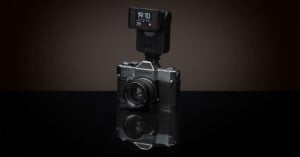
Finnish photographer Petri Damstén crafted a digital clock within a flash unit using a Raspberry Pi Pico, and it looks like a delightful accessory that many photographers would pay good money for.
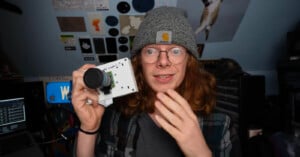
Creator Boaz crafted a custom camera module with a 3D-printed case using Raspberry Pi.
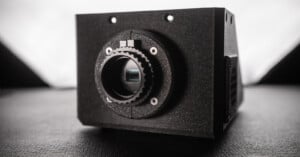
The Raspberry Pi has been used for many do-it-yourself photography projects over the years, including the recent Leica MPi camera and Photon light meter. Now, the open-source treatment has arrived for cinema.
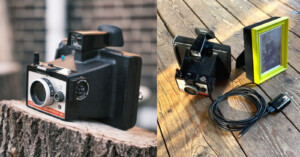
Max van Leeuwen built a Polaroid instant camera that can remotely "develop" its photos on a picture frame, no matter where in the world the camera and frame are.
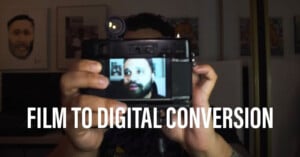
Photographer Malcolm Wilson recently converted a Yashica Electro 35mm film camera into a digital camera using a Raspberry Pi Zero 2W and Raspberry Pi HQ camera module. It's a fun twist on analog to digital conversions, and Wilson says his converted camera is one of his favorite cameras to use.
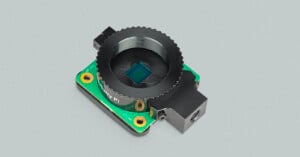
Raspberry Pi's new 1.6-megapixel Global Shutter Camera module promises instantaneous readout across the entire image area, eliminating rolling shutter distortion.
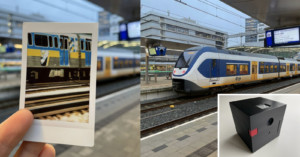
An artist has created a novel AI camera that describes what it sees to an AI image generator which then synthesizes the picture and instantly prints them out for the photographer.
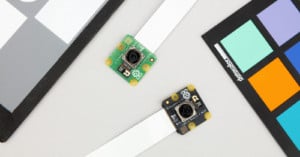
Raspberry Pi has announced the new Camera Module 3 in multiple variants that are higher resolution, feature autofocus and HDR, and that have the ability to capture both visible light and infrared.
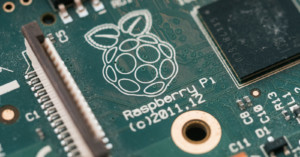
Raspberry Pi, makers of single-board computers and tiny cameras, has come under fire from members of its user base that are upset the company hired a former police officer who used the products to covertly surveil targets.
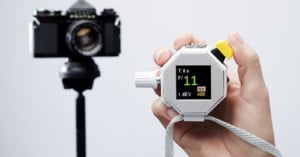
A team of designers has created what it calls the Photon: a small, simple, light meter that is powered by a Raspberry Pi Pico and costs a fraction of what most camera accessory companies charge for one.
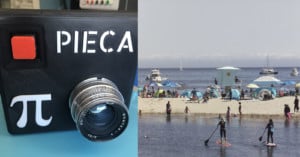
A computer engineer created a Frankenstein camera called the Pieca. It's a Raspberry Pi camera module with a Leica M-Mount fitted onto it.
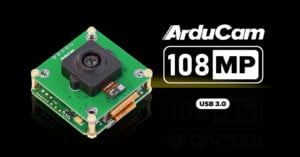
ArduCam has announced a new $399 108-megapixel USB camera module that is designed for use in machine vision applications. While it can run with Raspberry Pi, its USB interface makes it a lot more versatile for other applications.
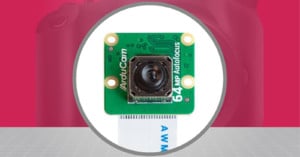
ArduCam has developed a new 64-megapixel, high-resolution camera that works with the Raspberry Pi, giving DIY camera builders a lot more creative flexibility.
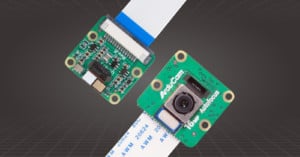
ArduCam, a Chinese company known for making open-sourced hardware and software for Arduino and Raspberry Pi systems, has launched a $25 Autofocus Camera for Raspberry Pi boards that offers a resolution 40% higher than the standard 12-megapixel Raspberry Pi HQ camera while maintaining the compact form factor of the 8-megapixel Raspberry Pi V2.
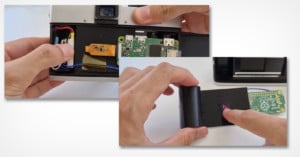
YouTuber befinitiv has published a video where he shows how he updated an old Cosina Hi-Lite film camera with a cartridge based on a Raspberry Pi that turned the analog camera into one capable of capturing digital photos and videos.
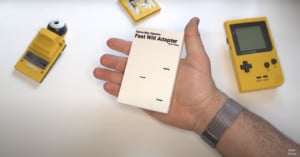
An engineer has figured out a way to bring the Game Boy Camera into the twenty-first century with a DIY wireless adapter that allows him to easily transfer all the images taken with the aged handheld gaming console camera to his smartphone.
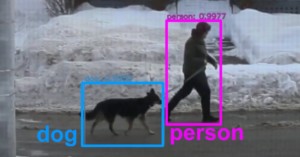
Looking at photos of dogs and cats can apparently make you feel happier, and self-proclaimed "depressed millennial" Ryder of the YouTube Channel Ryder Calm Down decided photos weren't good enough and developed a camera that recognizes dogs and alerts him so he can spot them out the window.
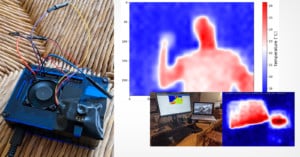
Thermal cameras are expensive. They can cost anywhere between a few hundred to a few thousand dollars to buy and can cost $50 a day to rent. So why not just build one for around $100?
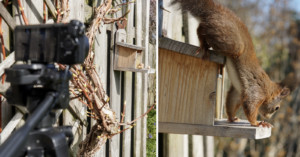
Recently a squirrel noticed our nut box that was waiting to be raided for almost a year now. But as our squirrels here are a bit skittish, I needed to come up with a way to get in close to take nice pictures of them.
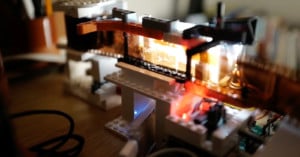
Industrious designer Benjamin Bezine has created a Raspberry Pi-powered film scanner that combines with a film advancer made from Lego and a mirrorless camera that along with machine learning automatically scans whole rolls of film.

Pranav Lal is a photographer from New Delhi, India who, despite his blindness, is able to take photos thanks to The vOICe, a device that turns live camera images into sounds that he can use to compose his images.
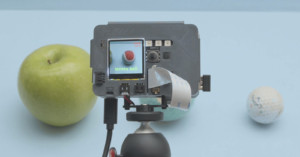
Adafruit Industries has created a machine learning camera built with the Raspberry Pi that can identify objects extremely quickly and audibly tell you what it sees. The group has listed all the necessary parts you need to build the device at home.
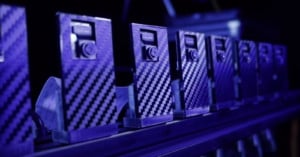
Famed bullet-time expert Eric Paré decided to challenge himself by building an experimental bullet-time rig using the Raspberry Pi Camera Module V2, a tiny 8-megapixel camera. While he encountered a few problems with the rig, he eventually got the 15 cameras working together without using custom electronic components.
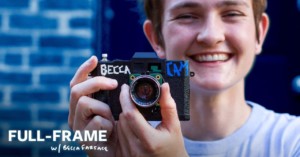
The Verge Video Director Becca Farsace recently set out to build her very own custom camera by merging a point-and-shoot film camera with the new Raspberry Pi High Quality Camera module and a Raspberry Pi 4 computer. Just one problem... she has zero coding knowledge. Cue a very frustrating week.
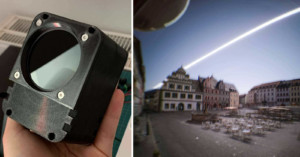
Solargraphies (pinhole images on photographic paper that capture months of the sun arching across the horizon) were a thing starting sometime in the 2000s. When this caught on broadly in the early 2010s, it got a lot of people excited for film again.
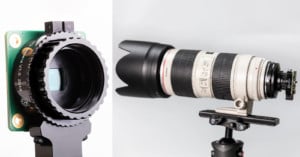
Raspberry Pi just upped its camera game in a big way. The charity and single-board computer maker has just released the so-called 'High Quality Camera'—a 12.3MP camera module complete with an interchangeable lens mount... all for just $50.

Want to set up a remote DSLR for shooting a time-lapse? The Intervalometerator (AKA 'intvlm8r') is an open-source intervalometer that can help you do so at minimal hardware cost (as long as you're comfortable tinkering with hardware and software).
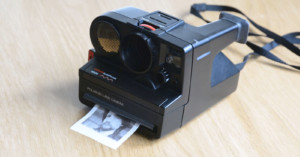
Polaroid cameras are fun to use, but shooting high numbers of instant photos can get very expensive very quickly. Tim Alex Jacobs, known as mitxela online, recently solved this problem by modifying a standard Polaroid camera into an instant camera that prints photos on thermal paper (the kind used for receipts).
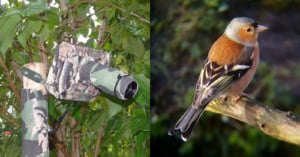
Want a remote motion-activated wildlife camera without shelling out big bucks? You can build one yourself using Raspberry Pi. PiBat recently built a pint-sized one, and it works quite well.